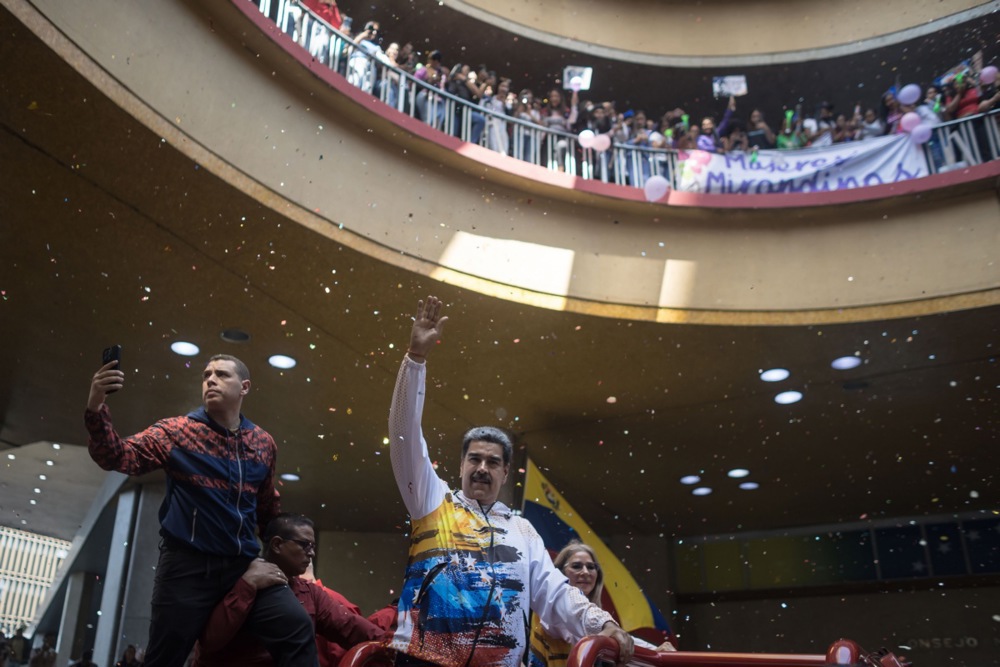In the run-up to the Venezuelan presidential elections to be held on the 28th of July next year, the Nicolás Maduro regime has recently taken two dictatorial measures: firstly, to prevent the registration of the candidacy of María Corina Machado, who is the undisputed leader of the opposition, having won 92 percent of the votes in the opposition primaries, and, secondly, to launch a fierce persecution of Machado’s team and allies. One of the measures that will ensure the persecution of political dissidents is the notorious ‘Law against Fascism’.
Several political dissidents have already been imprisoned. Among those imprisoned are the Secretary-General of Machado’s party (Vente Venezuela) and five other members of her electoral team. In addition, arrest warrants have been issued for six of her closest associates – including her campaign, media and international relations managers – and the latter have thus applied for asylum at the Argentine embassy in Caracas.
A new tool to persecute dissidents
However, not satisfied with the effectiveness of the persecution of dissidents, Maduro intends to put an end to all forms of dissent by adopting the “Law against Fascism,” which was discussed in the National Assembly on the 2nd of April last year.
The bill was presented by Executive Vice-President Delcy Rodríguez. It includes four chapters and 30 articles, the real aim of which is to ban the opposition and censor social networks. The bill also provides for the creation of a Commission against Fascism and an international network of groups, movements and institutions committed to the fight against fascism.
A fascism law that prosecutes anyone who is not in favour of Maduro
One of the most scandalous elements of the bill is the definition of fascism according to the diction set out by the Venezuelan regime: fascism would be anything identified with “racism, chauvinism, classism, moral conservatism, neoliberalism and misogyny.” This means that private property and conservative values are fascism, according to Nicholas Maduro‘s diction.
Anyone who defends the capitalist model, sovereignty against illegal migration, Christian values of family and life, and disagrees with radical feminism is, by definition, a fascist and could be jailed. It is also important to note that Delcy Rodriguez has stated that the pioneer of fascism in Venezuela is Alejandro Peña Esclusa, author of the book The Sao Paulo Forum’s Cultural Warfare.
The Venezuelan dictatorship’s definition of fascism is similar to that put forward by Antonio Gramsci and Willy Münzenberg in the context of the Second World War, whose aim was to criminalise anyone who disagreed with communism and to ensure that anyone who disagreed with Stalin was surely an ally of Hitler.
Under the presidencies of Hugo Chavez and Nicolas Maduro, Venezuela has become a laboratory for the international left to test new forms of cultural warfare, with the intention of exporting them to other nations; the formation of an international network against fascism, which is the subject of the bill, should therefore be carefully monitored.
I. K.


